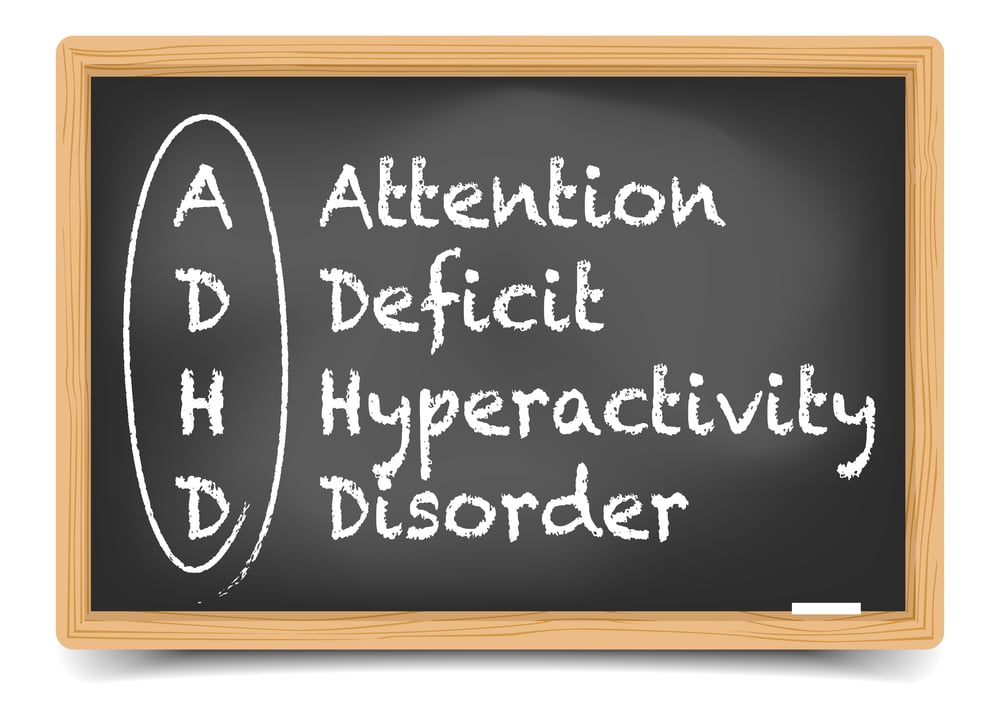ADHD (Attention Deficit Hyperactivity Disorder) is one of the most common neurodevelopmental disorders that results in trouble paying attention, impulsiveness, and hyperactivity. There are three different types of attentional problems or diagnoses listed under the Attention Deficit Hyperactivity Disorder title.

- Attention Deficit Hyperactivity Disorder Mainly Inattentive Presentation
- This is often referred to as Attention Deficit Disorder (ADD)
- Attention Deficit Hyperactivity Disorder Hyperactive/impulsive Presentation
- Attention Deficit Hyperactivity Disorder Combined Presentation
- Having Inattentive and Hyperactive problems
Common Symptoms
Attentional Symptoms
- Do not give close attention to details
- Making careless mistakes in school and work assignments
- Difficulty sustaining attention in tasks or play
- Often not listening when spoken to directly
- Difficulty in organization and problem prioritizing
- Poor planning
- Not following through on instructions or failing to finish work/assignments
- Avoiding or reluctant to do activities that require sustained mental activity
- Easily distracted by external stimuli
- Forgetful of daily activities/requirements
Hyperactivity Symptoms
- Often fidgeting (taping hands, feet, or squirming)
- Difficulty in remaining seated, needing to get up and move around when not appropriate or expected
- Running around, climbing on objects or furniture
- Excessive talking
- Difficulty waiting turn
- Blurting out answers or information before the questions are asked
- Interrupting others
- Impulsiveness
- Hyperactivity
- Driven like a motor
- Restlessness
- Excessive activity
Effects of ADHD
Attention Deficit Hyperactivity Disorder is often diagnosed in childhood and can persist into adulthood. While some people with ADHD have fewer symptoms as they age, in others, the symptoms can still majorly interfere with their lives. In adults, the main features of ADHD may include difficulty paying attention, impulsiveness and restlessness.
Untreated ADHD has the potential to have adverse effects on an individual’s life. This includes academic difficulties (both during childhood and college), social strains, and performance in a job or career. It was previously thought children eventually outgrow ADHD; however, recent studies suggest as much as 60% of individuals with ADHD as a child continue to show significant symptoms of ADHD in their adult years.
Children with untreated ADHD often struggle in their academics so significantly that it impacts what they are learning and achievement and has a severe impact on their self-esteem and overall view of themselves. Typically, these children know they are struggling and often failing. As a result, they have an underlying sense of dread toward achievement and education that is often coupled with anxiety centered on performance and achievement.
This negative self-worth and struggle with achievement can also significantly impact adulthood both with achieving in college and the work envelope. This can create a vicious cycle of a person seeing themselves as a failure, leading to a lack of motivation to succeed, thus bringing on an even more negative view of oneself and a further lack of any ambition or achievement. Often this cycle of failure and negative view of oneself brings about a secondary depression.
Many adults with ADHD aren’t aware they have it — they just know that everyday tasks can be a challenge. Untreated ADHD into adulthood continues this negative cycle of impact from being forgetful and distracted. Adults with ADHD may find it difficult to focus and prioritize. This often leads to trouble with time management. Additionally, these symptoms can lead to missed due dates for work, school, and personal projects, furthering the negative view and failure. Impulse control issues can range from outbursts to impatience while driving.
Treatments We Provide For ADHD:
We provide both neurofeedback and counseling services to treat ADHD.
How Neurofeedback Works with ADHD
A specialized Neurofeedback treatment plan/protocol can help with ADHD and is often used along with traditional counseling in order to focus on skill-building and habit changing. Neurofeedback research has demonstrated its effectiveness in helping a person gain better focus and concentration abilities. This often reduces or eliminates the need for any medication management.
Additionally, Neurofeedback is often helpful in treating symptoms that can accompany ADHD, such as: unwanted mood swings, anxiety, depression, problems sleeping, anger management issues and motivation. The easy, non-invasive treatment can painlessly improve your mental health and outlook on life.
Therapy/Counseling Services
Therapy assists individuals (children and adults) with ADHD by thoroughly understanding their unique symptoms of ADHD and how it impacts their school, work, and social environment. Then an individualized treatment plan is developed to help the person adapt and make changes to mitigate their symptoms. Often this incorporates many different techniques such as:
- Behavioral modification – Assisting the person in recognizing and then changing the behaviors that negatively affect them).
- Cognitive Behavioral Therapy (CBT) – Helping a person learn to recognize irrational thought patterns that lead to negative behaviors and outcomes, then construct new rational thought patterns instead of negative ones.
- Skills Training
- Time, Task, and space management
- Learning and implementing organization skills
- Learning time management skills
- Developing systems for success
- Creating a simplified and more orderly life
- Perfecting and implementing positive social skills
- Strategic planning and perspective-taking skill development
- Achieving a balanced and healthy lifestyle
- Time, Task, and space management
- Relaxation training
- Parental training – Assists parents in helping their ADHD children more directly in finding ways to overcome the ADHD symptoms.
Medication Management
While OPS does not prescribe medication, we are always willing to work with primary care physicians to discuss medication options for the treatment of symptoms.
